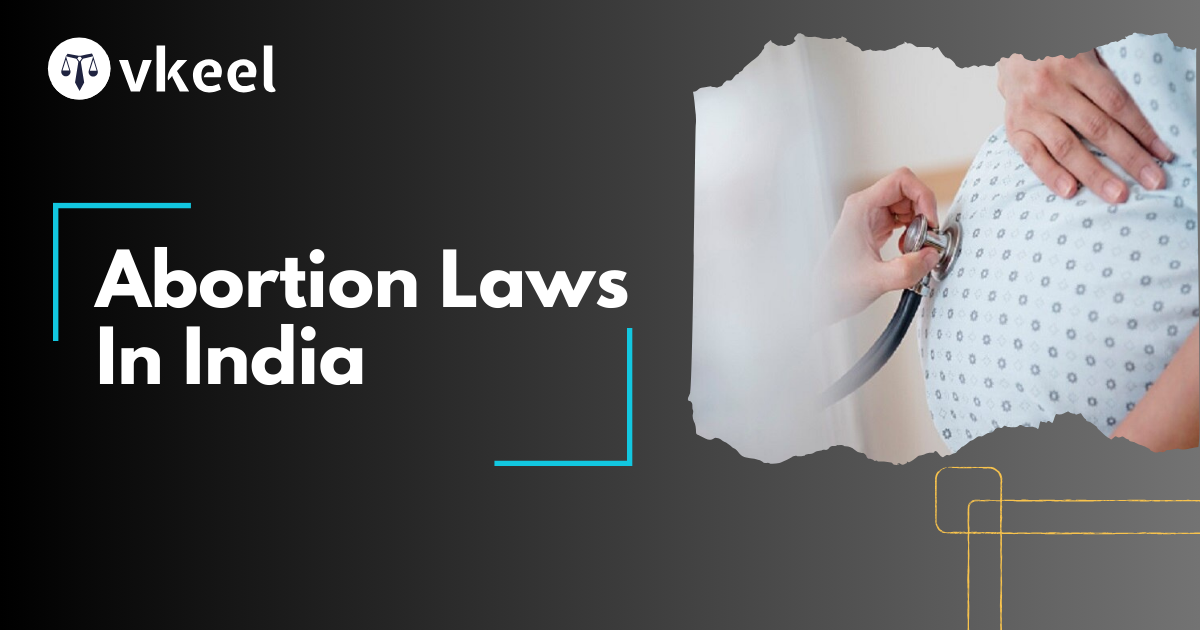Abortion Laws in India
By Himanshu Kumar
Table of Contents
Introduction
Abortion means the termination of pregnancy , an horrified moment for any women in her life either due to some complication or due to unavoidable circumstances. It is one of the subjects which has been discussed in both national and international level and such discussion led to certain solution and outcomes which in a certain way help to cater such situation with some solution.
Abortion can be understood under two shades in which one can be a positive one and other can be a negative one . Under the positive shade it can be considered as a life saving term for the existing human being and in other shade it can be considered as life taking term for the unborn one’s.
By stating such lines , a dilemma generally occurs whether a mother can terminate her pregnancy at any time she wishes or an unborn child has right to life. Abortion is a important topic which involve ethical, religious, cultural and legal considerations.
In Justice K.S Puttaswamy vs. the Union of India,2017, the Supreme Court recognized the constitutional rights of women to take reproductive choices, as a part of personal liberty under Article 21 of the Indian constitution.
Abortion laws in India have undergone significant changes over the years, reflecting evolving social attitudes towards reproductive rights and women’s healthcare. The legal framework governing abortions in India is encapsulated in the the medical termination of pregnancy (MTP) Act , 1971, which has been amended to address various issues and concerns.
Legal Provisions of Abortion Laws
The MTP Act, enacted in 1971 , legalized abortion under specific circumstances and with prescribed gestational limits . The key provision includes:
1. Conditions for legal abortion
Abortion is permissible under the following circumstances:
Up to 12 weeks of pregnancy: On the opinion of one Registered Medical Practitioner (RMP).
Between 12 to 20 weeks : On the opinion of two RMPs, who agree that continuation of the pregnancy would risk the woman’s life or cause physical or mental health complications.
Beyond 20 weeks : Abortion is permitted if it is immediately necessary to save the life of the pregnant women or to prevent grave injury to her physical or mental health , or if there is substantial risk that the child, if born , would rather suffer from physical or mental abnormalities.
2. Authorized Medical Practitioners
Only registered medial practitioners (RMPs) in government-approved facilities are allowed to perform abortions under the MTP Act. The Registered Medical Practitioners are specialized professional who conduct such procedure with due care and diligence and the chances of uncertainty is considerably low as compared to unprofessional medical practitioners.
3. Places of Abortion
Abortion procedures must be carried out in registered hospitals or clinics approved for this purpose by the government. The government has decided some specific places or hospitals for this procedure to avoid illegitimate abortion .
4. Consent and Confidentiality
Consent of the pregnant women or her guardian (in case of a minor or mentally ill women) is necessary for performing an abortion. The Act also emphasizes maintaining confidentiality regarding the identity of women seeking abortion services.
Recent Amendments to the MTP Act
The MTP Act was amended in 2021 to address various challenges and expand access to safe abortion services. The Key amendments include:
Extension of the Gestation Period
The upper limit for seeking an abortion has been increased from 20 weeks to 24 weeks for certain categories of women , including survivors of rape, victims of incest , and minors. The amendment aims to provide timely healthcare to vulnerable groups .
Decentralization of Approval Process
The amended act allows for approval of abortions up to 24 weeks by medical boards at the district or state level , reducing delays in obtaining in necessary approvals.
Enhanced Privacy and Confidentiality
The amended act strengthens provisions related to maintaining the confidentiality of women seeking abortion services , ensuring privacy and dignity.
Expansion of Provider Base
The amendments enable mid-level healthcare providers, including nurses midwives, to provide medical abortion services, thereby increasing access to safe and legal abortions.
Challenges in Abortion Laws
Despite progressive amendments and judicial rulings, challenges persist in implementing abortion laws effectively in India:
Awareness and Accessibility
Many women, especially in rural areas , lack awareness about their reproductive rights and face barriers in accessing safe abortion services due to lack of education or support from their family members which leads to many complication and often leads them to death bed.
Stigma and Social Norms
Stigma surrounding abortion leads to discrimination and hinders women from seeking necessary healthcare services.
Healthcare Infrastructure
Uneven distribution of healthcare facilities and trained providers poses challenges in ensuring universal access to safe abortion services.
Considerations
To address these challenges certain efforts are required:
Raise awareness about reproductive rights and abortion laws through education and advocacy
Strengthen healthcare infrastructure to ensure the availability of quality abortion services across the country.
Combat stigma and discrimination associated with abortion through community engagement and social campaigns.
Case Laws which shapes abortion laws in India
Suchitra Srivastava v. Chandigarh Administration(2009)
This landmark case emphasized a women’s right to make reproductive choices, including the decision to terminate a pregnancy . The Supreme Court held that reproductive rights are integral to a woman’s right to dignity and personal autonomy.
Nikita Mehta v. State of Maharashtra (2020)
In this case, the Bombay High Court allowed an abortion beyond the 20-week limit in cases of fetal abnormalities, highlighting the importance of compassionate interpretation of abortion laws.
Ms.X vs Hospital Z(2018)
The Delhi High Court ruled in favor of a woman seeking a late -term abortion due to fetal abnormalities , emphasizing the need for a human approach to interpret abortion laws in cases of severe fetal abnormalities.
Conclusion
The legal structure of abortion laws in India has evolved significantly with amendments to the MTP Act and progressive judgements by the judiciary. Recent reforms have aimed at expanding access to safe and legal abortion services while upholding women’s rights and dignity. Moving forward, sustained efforts are crucial to address existing challenges and ensure that every women can exercise her reproductive rights and access essential healthcare services without stigma or discrimination.
These efforts towards awareness, education and healthcare infrastructure are essential to uphold women’s rights and promote reproductive health in India. landmark case laws and recent amendments have paved the way the for a more progressive legal framework, but continued advocacy and implementation are essential to realize the full potential of women’s reproductive rights in India.
Disclaimer:
The information provided in the article is for general informational purposes only, and is not intended to constitute legal advice or to be relied upon as a substitute for legal advice. Furthermore, any information contained in the article is not guaranteed to be current, complete or accurate. If you require legal advice or representation, you should contact an attorney or law firm directly. We are not responsible for any damages resulting from any reliance on the content of this website.










